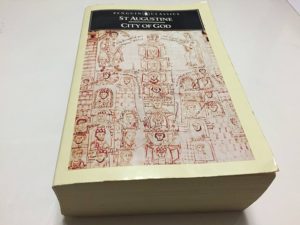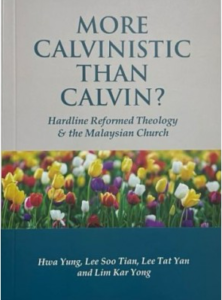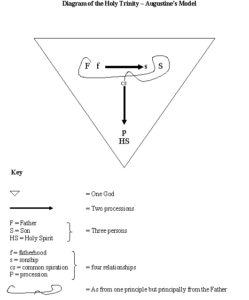 Citizens of two cities
Citizens of two cities
It would be misleading to conclude that Augustine was preoccupied with inward and individualistic religion merely because he exhibited great personal sensitivity and had a profound understanding of human psychology in his book, Confessions. On the contrary, his wide-ranging interests moved him to commend a Christian faith that addresses diverse issues including biblical interpretations, philosophy of history, political science and ethics.
Augustine’s big tome, The City of God,/1/ a project spanning fifteen years, was spurred by accusations that the city of Rome fell to invading barbarians because Christianity undermined the moral fiber of the Empire. In response, Augustine goes beyond giving a straightforward reply and instead, constructed a comprehensive Christian social philosophy which would demonstrate the intellectual vigor of Christianity. To achieve this ambitious project, Augustine utilized all the tools of classical learning and pressed them into service of Christian scholarship. He displayed familiarity with the intellectual classics of mythology, history, theology and philosophy as he mounted acute polemics against pagan religions and philosophies. He was indebted to classical philosophy like Neoplatonism and the commonsensical wisdom of Cicero. He mastered the works of classical historians like Varro, Caesar’s librarian and author of 490 books, who was regarded as “the most brilliant of his age and most learned man in Rome” (City of God, 6.2) to buttress his case. However, he always maintained his independent Christian perspective. The sheer comprehensiveness of his project displays his confidence that Christianity alone gives a superior account for all aspects of life. All in all, The City of God is a manifesto on how to be an other-worldly but responsible citizen in the world. Continue reading “St. Augustine on the (Temporal) City of Man and the (Eternal) City of God”

 The book, More Calvinistic Than Calvin? (MCTC) was published in 2023 by a team of local seminary lecturers under the leadership of Bishop Hwa Yung. [The book is available from Canaanland Book Store]. The aim of the book is to refute what it describes as “hardline Calvinism”, and to counter the influence of “hardline Calvinism” among college students in Malaysia.
The book, More Calvinistic Than Calvin? (MCTC) was published in 2023 by a team of local seminary lecturers under the leadership of Bishop Hwa Yung. [The book is available from Canaanland Book Store]. The aim of the book is to refute what it describes as “hardline Calvinism”, and to counter the influence of “hardline Calvinism” among college students in Malaysia.
 Citizens of two cities
Citizens of two cities